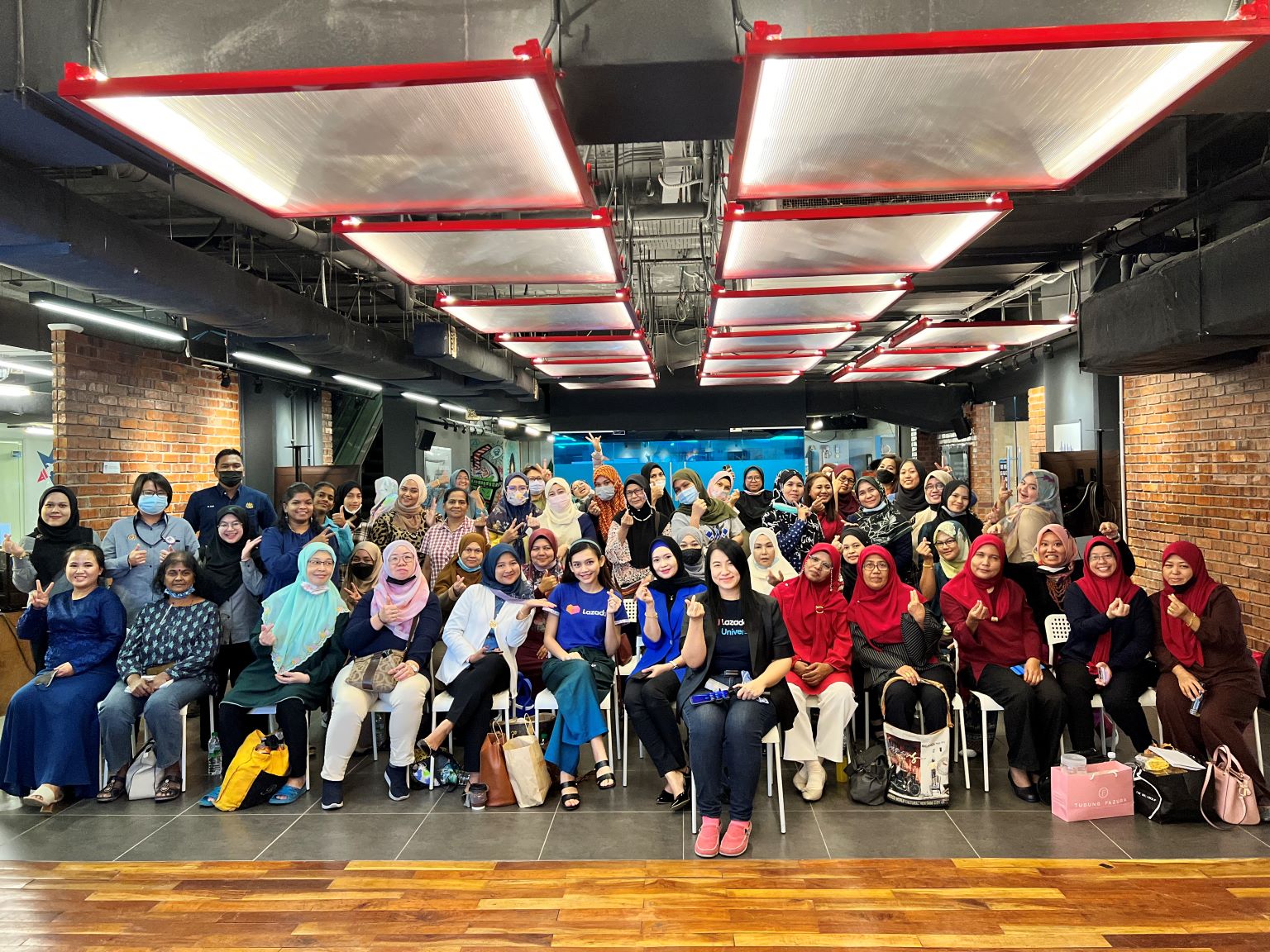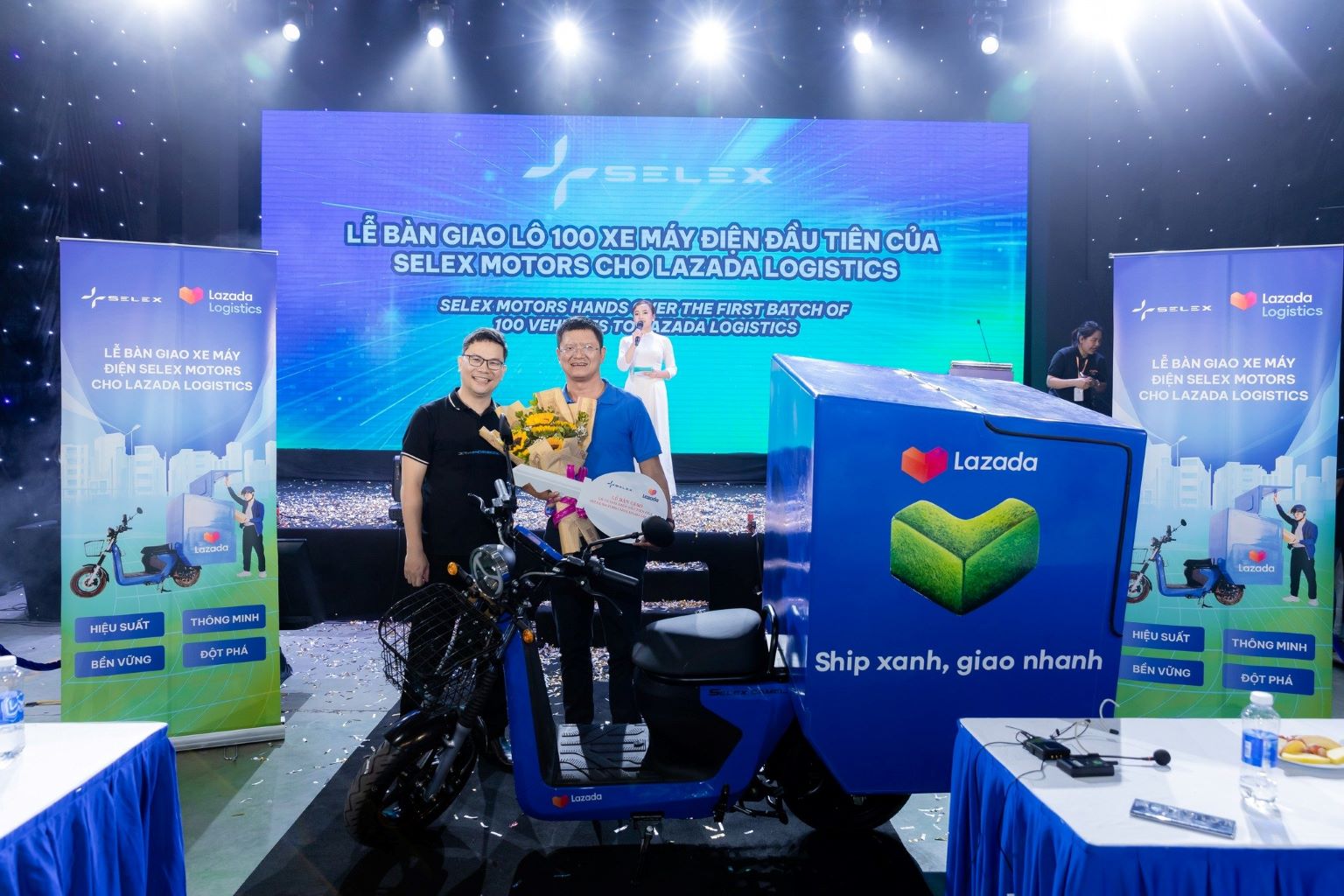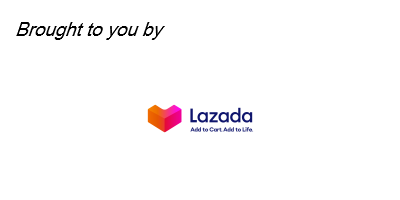BRANDED CONTENT
Supporting small businesses and greener routes: How this e-commerce platform prioritises its ESG goals
The recent steps that Lazada has taken, as outlined in its ESG Impact Report 2023, also align with the company’s overall business strategy of adapting to changing demands and conditions

Lazada supports its merchants in their digital transformation through relevant upskilling exercises and training. PHOTO: LAZADA
Follow topic:
For a company to gauge its environmental, social, and governance (ESG) progress, it should heed the feedback of its stakeholders. Their input can foster both organisational and societal improvements.
This is what digital commerce platform Lazada did as part of its FY2023 ESG Impact Report which was released in August, the second of such reports that the e-commerce platform has voluntarily published since 2022.
Says Lazada Group’s chief finance officer (CFO), Mr Frank Luo: “It was important for Lazada to reach out to employees, logistics, suppliers, buyers, sellers, communities and sustainability experts to better understand their expectations of the company’s operations with regards to ESG.
“We received invaluable insights, and incorporated some into this year’s ESG Impact Report and are working toward aligning the rest with our ESG strategy. For example, we have aligned our framework toward the Sustainable Development Goals (SDG).”
Formulated by the United Nations, the SDGs are a collection of 17 interlinked objectives that were designed as a shared blueprint for all UN member states to work towards ending poverty, protecting the planet and ensuring prosperity for all.
According to the report, Lazada’s overall business strategy of adapting to changing demands and conditions is rooted in the four key pillars that make up its ESG framework — empowering communities, a future-ready workforce, environmental stewardship and effective governance. These pillars are also aligned with the SDGs.
Uplifting small businesses and enhancing omnichannel shopping
The first pillar of Lazada’s ESG framework, empowering communities, is aligned with six SDGs: no poverty, quality education, gender equality, decent work and economic growth, industry, innovation and infrastructure, and reduced inequalities.
To address some of these issues, Lazada has been working to assist people who rely on its platform as their primary source of income across the six countries it operates in – Indonesia, Malaysia, the Philippines, Singapore, Thailand and Vietnam.
"We create opportunities that drive economic growth and empowerment by connecting about 160 million active users to more than 1 million active selling sellers every month," says Mr Luo.
As a result, in the company’s 2023 financial year, 1.1 million stakeholders across its ecosystem benefited from the economic opportunities that the digital commerce platform provided, according to the ESG Impact report.

These stakeholders include micro, small and medium enterprises (MSMEs) across Southeast Asia that got support from Lazada in their digital transformations. For example, in Malaysia, Lazada trained more than 600 women from marginalised and low-income communities in digital commerce as part of its LazEmpower initiative.
In Thailand, Lazada partnered with the Bangkok Metropolitan Administration, Thailand Tourism Authority and Tourism Council of Thailand to support 200 homegrown labels and local businesses. They provided onboarding support and assistance during the incubation period for new sellers on the platform. And across the region, Lazada organised more than 30 conferences to help online sellers stay up-to-date with trends.
To address innovation and infrastructure, Lazada has also been supporting merchants in transitioning from an online-only environment to an omnichannel retail avenue. In May 2022, more than 20 international and Singapore tech brands participated at the Grand Online Tech Show, Lazada’s inaugural in-person omnichannel tech show. The event allowed customers to explore and test products in person while also enjoying the conveniences of online shopping.
“Consumers could easily make purchases through the Lazada App, with the option of doorstep delivery or in-store pick-ups. This shows boosted growth in sales by 25 per cent compared to the all-virtual event held in 2021,” said a Lazada spokesperson.
Equipping today’s workforce with the right skills for tomorrow
Lazada's future-ready workforce pillar is aligned with five SDGs: good health and well-being, quality education, gender equality, decent work and economic growth and reduced inequalities.
At the top of the company's achievements is its 44 per cent female workforce, according to the ESG report. Lazada attributes this to its talent attraction strategy, which promotes inclusivity and equal opportunities.
Ms Gladys Chun, chief counsel for the Lazada Group, says: "We ensure that our job postings, recruitment channels, interview process and communication materials are devoid of discriminatory language and biases.”
Once they join the company, employees benefit from coaching, feedback, and structured training such as workshops and e-learning. Lazada has invested in an in-house digital learning platform, called Grow, that offers more than 1,000 courses covering topics such as business, commercial retail, communication and compliance.
Lazada is also strengthening its commitment to employee well-being. In 2022, the company introduced LazListen, a mental well-being support programme to address personal or workplace issues that may impact employee's mental health.
"All employees can dial the LazListen round-the-clock support hotline and seek confidential consultations with trained professionals," says Ms Chun.
Introducing energy-efficient transportation and strengthening cybersecurity

According to the ESG Impact report, Lazada's environmental stewardship pillar is aligned with three SDGs: affordable and clean energy, responsible consumption and production, and climate action.
Mr Luo says a notable achievement for the company was the reduction in greenhouse gas (GHG) emissions by 10 per cent between April 2022 and March 2023 compared to the same period a year before.
The reductions were mainly attributed to the company introducing energy efficiency measures in its facilities and taking a more direct control of its transportation needs.
"We saw improved efficiencies from our logistics operations as the main lever that reduced our overall carbon footprint," says Ms Chun.
Lazada is also working towards implementing the use of 100 electric scooters in Vietnam for deliveries by the end of 2023, and took steps into clean energy to build green logistics operations, for example by supporting the transition to solar energy at its logistics facilities in Indonesia.
Another highlight was the more than 20,000 solo delivery trips in Indonesia that were avoided through collaborations with logistics partners, which resulted in approximately 7 million km of distance avoided.
"Improvements like these will continue to be a key focus for our business as we strive toward decarbonising our operations and ecosystem," says Ms Chun.
As part of its responsible environmental stewardship, Lazada has also improved materials and packaging, according to its report.
In Indonesia, the company collaborated with a local brand which uses Lazada’s logistics solution to fulfil its online orders. They used shredded carton boxes as paper fillers instead of plastic pillows which has resulted in more than 1,000 kg of discarded paper cartons being reused.

In Singapore, Lazada subsidiary RedMart reused more than 250kg of recycled plastics since the launch of its eco-range household cleaning products in May 2022.
The online grocery store also used 1,400 less carton boxes by encouraging its frequent buyers to opt to receive their orders in reusable tote boxes which they can then return to RedMart to be reused for their next order, thus helping to reduce packaging waste.
RedMart also minimised food waste through a pilot initiative with local brewer CRUST Group, by recycling more than 30kg of RedMart bread into a crafted beer called RedMart X Crust Lager Beer.
The last ESG framework pillar, effective governance, is aligned with the SDGs peace, justice and strong institutions.
Lazada's corporate governance includes upholding business ethics and anti-corruption, as well as boosting cybersecurity and data privacy.
Its governance policies cover critical aspects such as anti-bribery, anti-corruption, conflict of interest and information security.
Notably, Lazada achieved the Cyber Trust (Advocate) certification mark, developed by the Cyber Security Agency of Singapore, making it the first and only e-commerce company to achieve this, says Mr Luo.
Lazada also reported zero substantiated complaints concerning breaches of customer privacy and losses of customer data during the reporting period of 1 April 2022 to 31 March 2023, according to its ESG impact report.
Both Mr Luo and Ms Chun acknowledge the substantial commitment it takes to find the right solutions for ESG challenges across Lazada's operations.
"Our approach from day one is to build a future-proof company, and a key strategy is to be adaptable to the ever-changing business landscape," said Ms Chun.
This makes Lazada’s ESG journey a complex and transformative process, which is why the company takes a consistent and long-term approach to fulfilling its ESG responsibilities, says Mr Luo.
"Moving forward, we will continue to monitor the developments across the ESG landscape and expand the material topics accordingly," adds Mr Luo.


